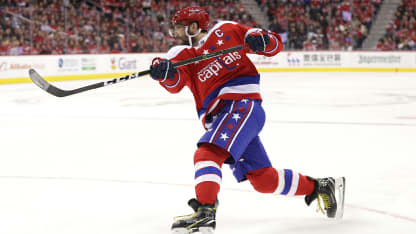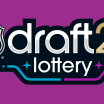Ovechkin leads the NHL with 29 goals through 33 games. While leading the NHL in goals is nothing new for Ovechkin, who has won the Maurice "Rocket" Richard Trophy as the League's top goal-scorer seven times in his first 13 NHL seasons, what's noteworthy is that he's doing it at age 33. The last time a player 33 or older led the NHL in goals was in 1974-75, when center
Phil Esposito
of the Boston Bruins scored 61. New York Rangers forward
Jaromir Jagr
scored 54 goals in 2005-06, when he was 33, but finished second behind San Jose Sharks forward
Jonathan Cheechoo
, who had 56.
Age doesn't seem like much of a factor for Ovechkin, who is on pace for an NHL career-high 72 goals in 82 games. If Ovechkin continues to score at his current pace or even at his NHL career average (.61 goals per game), he would surpass forwards
Dave Andreychuk
(640; 14th on the NHL's all-time list) and
Brendan Shanahan
(656; 13th) this season.
If Ovechkin continues to produce over multiple seasons, he could potentially challenge
Wayne Gretzky
, whose 894 goals in 1,487 games (.60 goals per game) are the most in NHL history. Ovechkin has 636 through 1,036 games and would need 258 goals, an average of 36 for the next seven seasons, to tie Gretzky.
To better predict the likelihood of this happening, let's say Ovechkin matches his goals-per-game output from 2012-13 (.66), the last time he averaged at least 20:53 of ice time per game and had a shooting percentage of at least 14.5. In this scenario, he'd finish this season with 54 goals in 82 games, giving him 661 goals in 1,085 games.
He would need an additional 233 goals, or an average of 33 goals during the next seven seasons, to tie Gretzky. Much of that depends on how long Ovechkin will play in the NHL. His contract has two years remaining; after that, he could become an unrestricted free agent.
While there is a general correlation to scoring fewer goals as a player ages, it's not out of the realm of possibility that an elite forward can continue to produce 30-plus goal seasons in the later stages of his career.


















